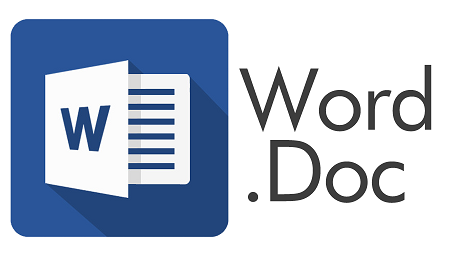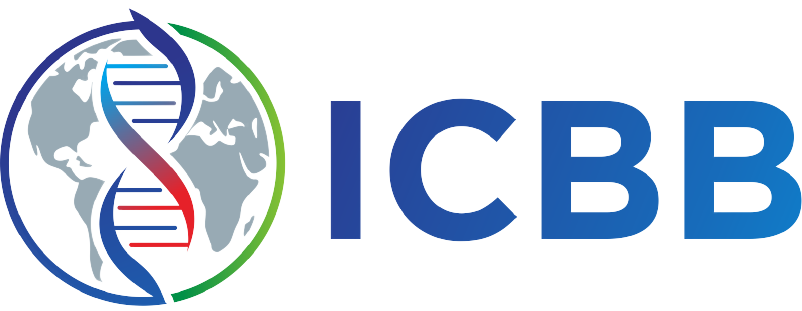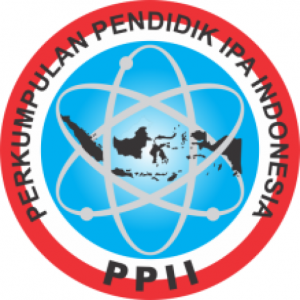Potential of Curcumin in Curcuma Longa as an Alternative Therapy for PCOS: A Literature Review
Authors
Salsabila Dinda Nuril Ishlahi , Metta OctoraDOI:
10.29303/jbt.v24i3.7481Published:
2024-08-26Issue:
Vol. 24 No. 3 (2024): July - SeptemberKeywords:
Alternative therapy, Curcuma longa, curcumin, PCOS.Articles
Downloads
How to Cite
Downloads
Metrics
Abstract
Polycystic ovary syndrome (PCOS) is a common reproductive endocrine hormone disorder in women of childbearing age with a global incidence of 8-13%. The use of medical drugs in the long term can cause serious side effects so that the utilization of curcumin contained in Curcuma longa can be an alternative therapy consideration for PCOS. This paper will discuss the potential and benefits of curcumin content as an alternative therapy for PCOS. The method used, namely by reviewing the literature in national and international journals that are in accordance with the objectives of the review. The results of the literature review show that curcumin has effectiveness in treating PCOS through various mechanisms of action accompanied by minimal side effects. Alternative therapy of PCOS by taking curcumin needs to consider the dose, duration of use, and further research with larger subjects in assessing its effectiveness and side effects. However, it is suspected that nanocurcumin formulations have higher bioavailability and solubility than free curcumin, giving it even greater potential in the treatment of PCOS in the future. In conclusion, curcumin has the potential as an alternative therapy for PCOS that requires further research to achieve the optimization of PCOS treatment in the future.
References
Akter, T., Zahan, M. S., Nawal, N., Rahman, M. H., Tanjum, T., Arafat, K., … Uddin, M. J. (2023). Potentials of curcumin against polycystic ovary syndrome: Pharmacological insights and therapeutic promises. Heliyon, 9(6), e16957. https://doi.org/10.1016/j.heliyon.2023.e16957
Asan, S., Bas, M., Eren, B., & Karaca, E. (2020). The effects of curcumin supplementation added to diet on anthropometric and biochemical status in women with polycystic ovary syndrome: A randomized, placebocontrolled trial. Progress in Nutrition, 22(4), 1–13. Acibadem Mehmet Ali Aydinlar University Research Information System. https://doi.org/10.23751/pn.v22i4.10460
Balkrishna, A., Rana, M. K., Mishra, S., Srivastava, D., Bhardwaj, R., Singh, S., … Arya, V. (2023). Incredible Combination of Lifestyle Modification and Herbal Remedies for Polycystic Ovarian Syndrome Management. Evidence-Based Complementary and Alternative Medicine, 2023, 1–20. https://doi.org/10.1155/2023/3705508
Chaturvedi, P., Mukherjee, S., Mehta, S., Chatterjee, P., & Chowdhary, A. (2014). Media Optimization in Immobilized Culture to Enhance the Content of Curcumin in Curcuma longa (Zingiberaceae) and Protein Profile of Treated Samples in Static Culture. Natural Products Chemistry & Research, 002(Special Issue 1), 1–4. Semantic Scholar. https://doi.org/10.4172/2329-6836.s1-002
Chien, Y.-J., Chang, C.-Y., Wu, M.-Y., Chen, C.-H., Horng, Y.-S., & Wu, H.-C. (2021). Effects of Curcumin on Glycemic Control and Lipid Profile in Polycystic Ovary Syndrome: Systematic Review with Meta-Analysis and Trial Sequential Analysis. Nutrients, 13(2), 684. https://doi.org/10.3390/nu13020684
Christ, J. P., & Cedars, M. I. (2023). Current Guidelines for Diagnosing PCOS. Diagnostics, 13(6), 1–11. MDPI. https://doi.org/10.3390/diagnostics13061113
Day, F., Karaderi, T., Jones, M. R., Meun, C., He, C., Drong, A., … Stuckey, B. G. A. (2018). Large-scale genome-wide meta-analysis of polycystic ovary syndrome suggests shared genetic architecture for different diagnosis criteria. PLOS Genetics, 14(12), e1007813. https://doi.org/10.1371/journal.pgen.1007813
Deswal, R., Narwal, V., Dang, A., & Pundir, C. S. (2020). The Prevalence of Polycystic Ovary Syndrome: A Brief Systematic Review. Journal of Human Reproductive Sciences, 13(4), 261–271. https://doi.org/10.4103/jhrs.JHRS_95_18
Hoeger, K. M., Dokras, A., & Piltonen, T. (2020). Update on PCOS: Consequences, Challenges, and Guiding Treatment. The Journal of Clinical Endocrinology & Metabolism, 106(3), 1–13. Endrocine Society. https://doi.org/10.1210/clinem/dgaa839
Jabczyk, M., Nowak, J., Hudzik, B., & Zubelewicz-Szkodzińska, B. (2021). Curcumin in Metabolic Health and Disease. Nutrients, 13(12), 4440. https://doi.org/10.3390/nu13124440
Jamilian, M., Foroozanfard, F., Kavossian, E., Aghadavod, E., Shafabakhsh, R., Hoseini, A., & Asemi, Z. (2020). Effects of curcumin on body weight, glycemic control and serum lipids in women with polycystic ovary syndrome: A randomized, double-blind, placebo-controlled trial. Clinical Nutrition ESPEN, 36, 128–133. https://doi.org/10.1016/j.clnesp.2020.01.005
Kamal, D. A. M., Salamt, N., Yusuf, A. N. M., Kashim, M. I. A. M., & Mokhtar, M. H. (2021). Potential Health Benefits of Curcumin on Female Reproductive Disorders: A Review. Nutrients, 13(9), 3126. https://doi.org/10.3390/nu13093126
Kusbiantoro, D., & Purwaningrum, Y. (2018). Pemanfaatan kandungan metabolit sekunder pada tanaman kunyit dalam mendukung peningkatan pendapatan masyarakat. Kultivasi, 17(1), 544–549. https://doi.org/10.24198/kultivasi.v17i1.15669
Lakshmi, J. N., Babu, A. N., Kiran, S. S. M., Nori, L. P., Hassan, N., Ashames, A., … Shaik, A. B. (2023). Herbs as a Source for the Treatment of Polycystic Ovarian Syndrome: A Systematic Review. BioTech, 12(1), 1–21. MDPI. https://doi.org/10.3390/biotech12010004
Liu, J., Wu, Q., Hao, Y., Jiao, M., Wang, X., Jiang, S., & Han, L. (2021). Measuring the global disease burden of polycystic ovary syndrome in 194 countries: Global Burden of Disease Study 2017. Human Reproduction, 36(4), 1108–1119. https://doi.org/10.1093/humrep/deaa371
Mohammadi, S., Bardei, L., Hojati, V., Ghorbani, A., & Nabiuni, M. (2017). Anti-Inflammatory Effects of Curcumin on Insulin Resistance Index, Levels of Interleukin-6, C-Reactive Protein, and Liver Histology in Polycystic Ovary Syndrome-Induced Rats. Cell Journal, 19(3), 425–433. https://doi.org/10.22074/cellj.2017.4415.
Raja, M. A., Maldonado, M., Chen, J., Zhong, Y., & Gu, J. (2021). Development and Evaluation of Curcumin Encapsulated Self-assembled Nanoparticles as Potential Remedial Treatment for PCOS in a Female Rat Model. International Journal of Nanomedicine, 16, 6231–6247. https://doi.org/10.2147/ijn.s302161
Reddy, P. S., Begum, N., Mutha, S., & Bakshi, V. (2016). Beneficial effect of Curcumin in Letrozole induced polycystic ovary syndrome. Asian Pacific Journal of Reproduction, 5(2), 116–122. https://doi.org/10.1016/j.apjr.2016.01.006
Shen, W., Qu, Y., Jiang, H., Wang, H., Pan, Y., Zhang, Y., … Zhang, Y. (2022). Therapeutic effect and safety of curcumin in women with PCOS: A systematic review and meta-analysis. Frontiers in Endocrinology, 13, 1051111. https://doi.org/10.3389/fendo.2022.1051111
Suprihatin, T., Rahayu, S., Rifa’i, M., & Widyarti, S. (2020). Senyawa pada Serbuk Rimpang Kunyit (Curcuma longa L.) yang Berpotensi sebagai Antioksidan . Buletin Anatomi Dan Fisiologi, 5(1), 35–42. Retrieved from ejournal2.undip.ac.id/index.php/baf/index
WHO. (2023, June 28). Polycystic ovary syndrome. Retrieved July 20, 2024, from www.who.int website: https://www.who.int/news-room/fact-sheets/detail/polycystic-ovary-syndrome#:~:text=Polycystic%20ovary%20syndrome%20%28PCOS%29%20affects%20an%20estimated%208
Yadav, K., Ghadge, P., Langeh, A., Kalbhare, S., Phadtare, P., & Bhoite, R. (2020). A Review on Herbal Medicinal Plant for Treatment of Polycystic Ovarian Syndrome (PCOS). Asian Journal of Pharmaceutical Research and Development , 8(4), 83–87. http://dx.doi.org/10.22270/ajprd.v8i4.769.
License
Copyright (c) 2024 Salsabila Dinda Nuril Ishlahi, Metta Octora

This work is licensed under a Creative Commons Attribution 4.0 International License.

Jurnal Biologi Tropis is licensed under a Creative Commons Attribution 4.0 International License.
The copyright of the received article shall be assigned to the author as the owner of the paper. The intended copyright includes the right to publish the article in various forms (including reprints). The journal maintains the publishing rights to the published articles.
Authors are permitted to disseminate published articles by sharing the link/DOI of the article at the journal. Authors are allowed to use their articles for any legal purposes deemed necessary without written permission from the journal with an acknowledgment of initial publication to this journal.


























